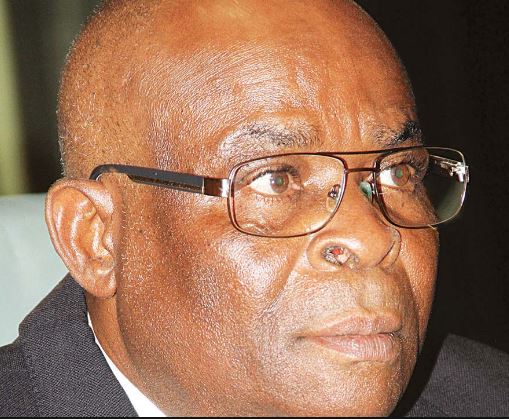People have reacted after a list purported to have emanated from
the NJC left out south-easterners while recommending 14 judges for
appointment.

Chief Justice of Nigeria, Walter Onnoghen
The National Judicial Council
(NJC) has been accused of marginalizing the south-east region after it
was alleged to have recommended 14 judges for appointment into the
Federal Court of Appeal, according to a report by Sahara Reporters.
In
the list obtained by SaharaReporters, not one judge of South-Eastern
origin is included. According to the report, the list which is split
into two categories-priority and reserved-shows Justice P. A. Mahmoud, a
Benue State indigene, and Nigerian Bar Association AB Mahmoud's wife as
the first name in the priority category.
The
second name on the list is Justice F. Ojo, an indigene of Kwara State
and wife of Mr. Bayo Ojo, a former NBA President and Attorney-General of
the Federation. Also on the priority list are Justices I. G. Abundaga
from Nasarawa State, M. B. Idris from Niger State, and A. M. Talba from
Adamawa State.
Others are Justices Kadi M. M.
Alkali from Adamawa State, A. I. Adenyangtso from Taraba, A. S. Umar and
O. Z. Senchi, both from Kebbi, A. M. Lamido from Sokoto, B. B. Aliyu
from Zamfara, Ebowei Tobi, son of the late Justice Niki E. Tobi from
Delta State and G.O. Kolawole from Osun State.
Names
on the reserved list include Justices O. Itodo (Benue), M. A. Abdul
Gafar (Kwara), D. D. Adeck (Nasarawa) D. G. Mann (Plateau) D. G. Goji
(Adamawa) and Kadi U. B. Umar (Adamawa). Others are Justices Y. A.
Bashir (Taraba), Z. B. Abubakar (Kebbi), I. M. Sani (Kaduna), F. L.
Adamu (Kano), I. B. Ahmed (Katsina), M Y Uftsha'u (Zamfara), P. O. Affen
(Bayelsa) and O. A. Ipaye (Osun).
Reacting to the news, Mr. Oye National Judicial Council Director of information urged Nigerians to discountenance the report.
“The attention of the National Judicial Council
has been drawn to a purported list of Judges newly appointed to the
Court of Appeal being circulated in public space and tragically reported
as news item by credible news outlets.
“The
Council wishes to dissociate itself completely from the said list as
nothing of such emanated from it. Members of the public are also advised
to discountenance the said list which is nothing but a figment of the
imagination of the author (s).”
“In
the days ahead, the council will speak more on the ongoing process for
the appointment of Judges into different Cadre of the Nigerian
Judiciary,” Mr. Oye said in a brief statement.
Speaking further, Awassam Bassey, the Senior Special Assistant to the Chief Justice of Nigeria and Chairman of the NJC, Walter Onnoghen, said the criteria for selection of judges follows a quota system, based on the zone for which a vacant position exists.
“I’m
not holding brief for the NJC or the interview panels, neither am I
confirming the authenticity or otherwise of the list circulating online,
but it is pertinent to clarify that appointment to the Court of Appeal
is by quota. Vacancies exist when Justices die, retire or are promoted
to the Supreme Court. In such situations, applications are called from
the zone of the previous occupant to replace him or her.
“Recently,
there have been series of Justices in the Supreme Court who retired
from the North, including the two previous Chief Justices of Nigeria,
Hon Justice Aloma Mukhtar GCON and Hon Justice Mahmud Mohammed GCON.
Also
one of the Justices from Sokoto State and another from Kaduna State
died at the stampede that occurred during pilgrimage in Saudi Arabia a
couple of years back. To fill those vacancies in the Supreme Court, the
equivalent number of Justices were elevated from the Court of Appeal,
including Hon Justices Amina Adamu Augie CON, Ejembi Eko, Paul Adamu
Galinje, and Sidi Dauda Bage, among others.
“Following
these departures, vacancies were advertised and, in tandem with the
quota system, it is expected that appointment to the vacant positions
would come from the zones of their previous occupants.
“The
Court of Appeal currently has 76 serving Justices from the original 85
appointed in the 16 Divisions of the Court spread across the six
geopolitical zones of the country,” Mr. Bassey said.
